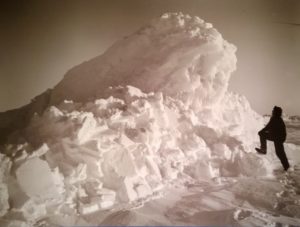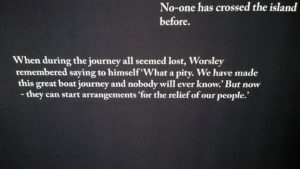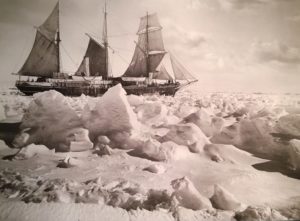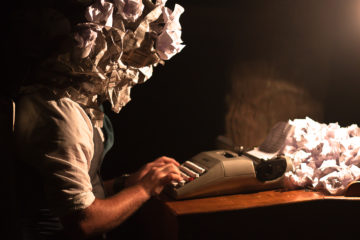After meeting a friend and discussing the highs and lows of PhD life and academia recently, I then went to see the Enduring Eye exhibition at the National Library of Scotland, Edinburgh. The exhibition is a stunning display of photographs of Sir Ernest Shackleton’s ‘Endurance Expedition’ of 1914-1917.
Being in academia right now kind of feels like being trapped in an iced-in ship, that is, in a hostile environment not suited to human beings. By no means do I intend to underplay the harsh experiences faced by the crew of the Endurance. But neither should we underestimate the mental and physical levy that is currently the “norm” of academia.
Here is the optimistic part of my post, working conditions are what we decide to make them. As we move into post-Brexit times it has never been more important to create good working conditions… at the forefront of this emphasis should be our universities, which are supposed to be focused on education and research, In other words, on people and their (our) striving towards better things…

The PhD process, post-doctorate and academic life is fraught with many dangers. I, amongst others, have not been immune to this. I will not share friend’s stories, but I will share a bit of mine, in that I suffered both mentally and physically in order to write journal articles, a thesis, do part-time work, look after undergraduates, write grant proposals, and get fellowships and funding. When the stress affected my health and I realised the harsh consequences of this, I made a conscious decision to be the change I wanted to see. I am not perfect, can anyone say that? I was inspired by people I observed in my department. The staff that took the extra time not just to give you feedback in a constructive way but also checked on how you were doing. The fellow academics that shared not just their stories of success—the performing social media persona I have come to loathe—also their stories of difficulty and perserverance.
The question we need to ask is what should our real perserverance be towards?
The above quote, and the one following, could be used to describe the life of a time-stressed academic working away at their desk…
Here comes the core of my article, what kind of place do we want to live and work in? If I suggest small changes like resisting the journal writing, the high performing wire of the ‘career path’, what are your first thoughts and feelings? Perhaps ones of horror… how on earth can I complete with Charlie, Amir and Samantha, without publishing one book and several hundred academic papers?
Honestly, you might not be able to. Academic skills can however be used out of the workplace, and surely that is better for mental and physical health than an academic burn out? I am probably not being controversial enough… It’s going to be hard for those that stick around in academia. Those that somehow survive year by year postdoctorate contracts are lucky. I have decided not to follow this route, because shock horror I am not an upper class individual and I need to cover my rent, food and heating. That academia is for the rich and the prividledged is nothing new. So here I (we?) are striking out on an alternative path.

Somehow I doubt we will end up frozen to the rocky tundra. The happy news is that Shackleton’s crew made it. Remarkably every one survived. My thoughts lately have been circling around that, survival alone is not enough, there is a certain quality of life I want and a lot of that does not revolve around money but less stress. The time to potter around in my garden without the stress of rewriting an academic article that might never be published all because I am told my work is not judged on its benefit to others but the number of journal articles that are accepted. Grrr!

As a sociologist it was natural that I interpret the Enduring Eye exhibition through my own reflexivity. I have not said anything new, just added one more voice to a growing number of articles recently. That academia pushes out the underprividledged, that working conditions are unsustainable in the long term, and that we demand better. Thoughts about a better world can be inspired by art, taken on a trip that no one thought possible until someone crossed the Antarctic. The reality is that we all play a part to make it possible. So what will your part be?
Rather than list solutions, because different individuals and different workplaces have different needs, I would like to ask you to take some time to reflect and share in the comments what you can do for yourself, to take care of yourself at work, and what you can do for others. Two little things… and hopefully this might help others who are stuck.
Mine are:-
1. For others I will try to express compassion, even when difficult.
2. For myself I will complete pieces of work in my own time, to allow time for creativity and time to live in the moment.
I wish you luck on your journey.











0 Comments